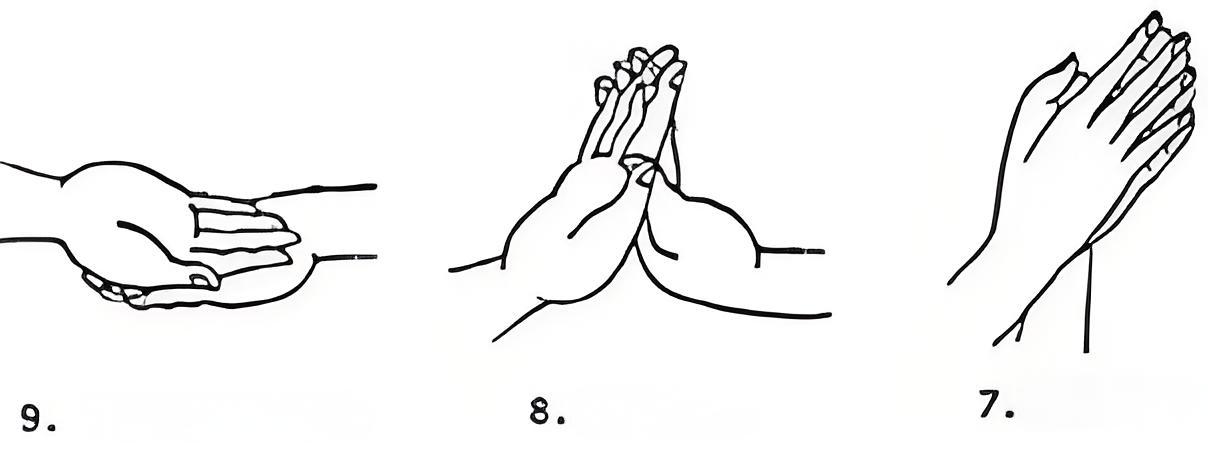type
status
date
slug
summary
tags
category
icon
password
AI summary
In Buddhism, sound holds profound significance. It’s far more than just noise or language. Therefore, chanting and mantra practice have a central role. These techniques allow us to delve into the deeper aspects of our mind. Furthermore, these sacred sounds help create positive change within ourselves. Specifically, using sound and voice, like a mantra for blessing speech, encourages clear and beneficial communication. This helps you foster kindness, wisdom and mindful awareness, within and without. In essence, through careful use of our voice, we can positively impact ourselves and others. The power of sound, thoughtfully applied, guides us on the path to enlightenment.

Understanding Mantra and Their Purpose
Mantras are sacred words, sounds, or phrases. Traditionally, Buddhists repeat them for concentration. The repetitive chanting quiets the restless mind. This practice facilitates spiritual growth. However, mantras are not mere words, they are instruments. They create vibrational shifts within. Thus, practitioners find them extremely potent. For instance, a mantra for blessing speech can help align intention and spoken word. Therefore, it can allow your words to manifest more positively. Moreover, their power isn’t derived from some mystical force, it comes from our focus. Therefore, the deep engagement during their practice matters. Ultimately, a mantra enables our mind to achieve higher states of clarity and understanding.
Cultivating Mindful Speech in Daily Life
Beyond using mantra for blessing speech, the concepts of Buddhist principles must be integrated into daily life. Consequently, our communication must reflect our mindful practice. For instance, we should strive to speak truthfully. Also, avoid hurtful or gossipy conversations. This is known as Right Speech on the Eightfold path. Practicing active listening when engaging with others is a component as well. Therefore, we can improve our relationships. It also reduces misunderstanding and conflict, cultivating greater compassion. Additionally, by actively choosing your words carefully, one creates harmony. Mindful communication reflects inner peace and the aspiration of well being.
The Importance of Intention
The power of speech isn’t just about the words spoken. It also lies within your intentions. Your true thoughts and intentions greatly influence their impact. If your motive is to harm, even kind words might be used negatively. A mantra for blessing speech, if not used with true intentions may be ineffective. Consequently, aligning your intention with compassion is very crucial. This practice encourages a mindful awareness. Before you speak, be conscious. In essence, it requires one to reflect. Consider the effects your words could have on others. Also, always remember compassion will cultivate speech that will inspire good will.
Specific Mantras for Speech

While various mantras may help, certain ones help cultivate virtuous communication. "Om Mani Padme Hum," for example, cultivates kindness. Chanting can bring purity into your speaking. Specifically, it awakens compassion. For focused blessing speech, try a short mantra or affirmation, like “May my words be for benefit.” or even "may my speech be loving and compassionate". Through regular practice, we can shift from thoughtless words to meaningful communication. It should align with your practice and bring greater intentionality to your words. For example, choose what helps and allows your awareness of speech improve.
Integrating Mantras Into Your Daily Routine
Integrating mantras into daily routines makes your practice effective. Specifically, this makes mindful communication second nature. Setting aside a small moment daily for chanting. Then dedicate a few minutes. Also, find times during the day to repeat a short phrase mentally. Especially, before beginning a dialogue. Visualize how the mantra for blessing speech has the potential to positively transform your verbal actions. Consistency builds momentum. Furthermore, small daily doses can greatly affect the words we choose. It allows for words that can promote healing and love, rather than hate and division. Thus integrating chanting promotes overall improvement and more mindful expression.
The Effects on Our Interactions
Through mantra practice and mindful speech, relationships greatly improve. Words that convey kindness, empathy and patience become more natural. Listening is also given equal importance. As you cultivate an attitude of awareness and understanding, it’ll bring peace. Therefore, disputes, tensions and hurt may decrease. Ultimately, a genuine connection through effective speech improves the well being of all involved. This also affects our interaction with ourselves. By reducing harsh and critical internal dialog it will help build compassion within ourselves. This self compassion cultivates peace within, and reduces negative interaction. The result can ripple through all aspects of our lives.
Overcoming Negative Speech Habits
One must actively overcome patterns that don’t benefit us and others. Therefore, becoming aware is important. Specifically, being cognizant of habits that create suffering. Next identify the type of triggers for unwholesome actions and statements. Consider why this happens, as self-awareness helps. Then when negative feelings arise, employ the mantra for blessing speech. This helps realign with mindful speaking. Instead of react impulsively, be intentional with responses. Moreover, being gentle, understanding, and forgiving toward oneself is a powerful force. Additionally, patience and a gradual positive change is also helpful. Eventually, you’ll start replacing hurtful patterns with words that empower all.
Speech as a Practice
Speech, in a Buddhist lens, is a powerful vehicle to spiritual practice. Through your word choice and how they are said, you create the present and future experiences. Therefore, speech itself becomes a method for training in mindfulness. Applying the intention of a mantra for blessing speech allows this aspect to develop even more deeply. As a result, we can more readily contribute to happiness by practicing mindful speaking and loving awareness. Each interaction offers another avenue for cultivation of compassion, understanding and positive expression. As a consequence, daily dialog and discussions become an embodiment of mindfulness and growth on the path. Thus practice every aspect with greater attention.
Extending Compassion Through Language
The act of using speech consciously cultivates both kindness and wisdom. Also it develops patience and acceptance. Thus, when your motivation stems from goodwill, interactions can become meaningful opportunities. Applying a mantra for blessing speech with intention ensures that positive emotions and kindness have primacy over other influences. This conscious way to speak extends empathy and understanding outward and towards all, not just ourselves. Ultimately, it reflects true engagement with the world around us. Therefore, through compassion one becomes an example of kindness to those you interact with and to society as a whole. So your example acts as a blessing and guide.
The Ongoing Journey of Mindful Speech
Mindful communication, a profound aspect of Buddhism, takes ongoing awareness. By engaging a mantra for blessing speech or other tools we nurture mindful awareness. Also with kindness to yourself, a better speaker emerges. Hence your awareness continually develops, improves your skills, increases kindness, empathy, and communication. Thus we commit to continue training. Consequently the process becomes as valuable as the outcomes. With persistence and dedication, our expression embodies a greater form of wisdom and awareness of self, as well as others.
Benefits of Continued Practice
Consistent effort toward your speech is vital, like other training paths. For example the mantra for blessing speech serves as reminder in speech, cultivating good and kind words. Each time the mantra or positive affirmation is practiced, it grows stronger in impact. This daily mindfulness enables growth and creates an enhanced quality to our overall dialog. Moreover, the benefits aren't only applicable to ourselves. These shifts inspire positive actions and create meaningful engagement throughout our surroundings. It also affects the very people you may have some interaction with. Therefore it improves community and cultivates a healthier environment as a whole.
Embodying Your True Self Through Speech
Your inner nature truly reflects your verbal communications. It offers a chance to show compassion and understanding through interaction. Practicing the lessons and tools from buddhism enables more authenticity. Integrating a mantra for blessing speech becomes a component for your intentions. This encourages compassion. It ensures we communicate honestly and truthfully. Eventually these words become your greatest blessing, that positively reflects on self and environment, for peace. Your speech then has the power to make a significant impact to improve, encourage and spread joy. Therefore one truly shines brightly through all verbal actions.
上一篇
Mantra Surugana: Unveiling its Power and Meaning
下一篇
Explore Deepwoken on How to Make Mantra Bigger
Loading...






